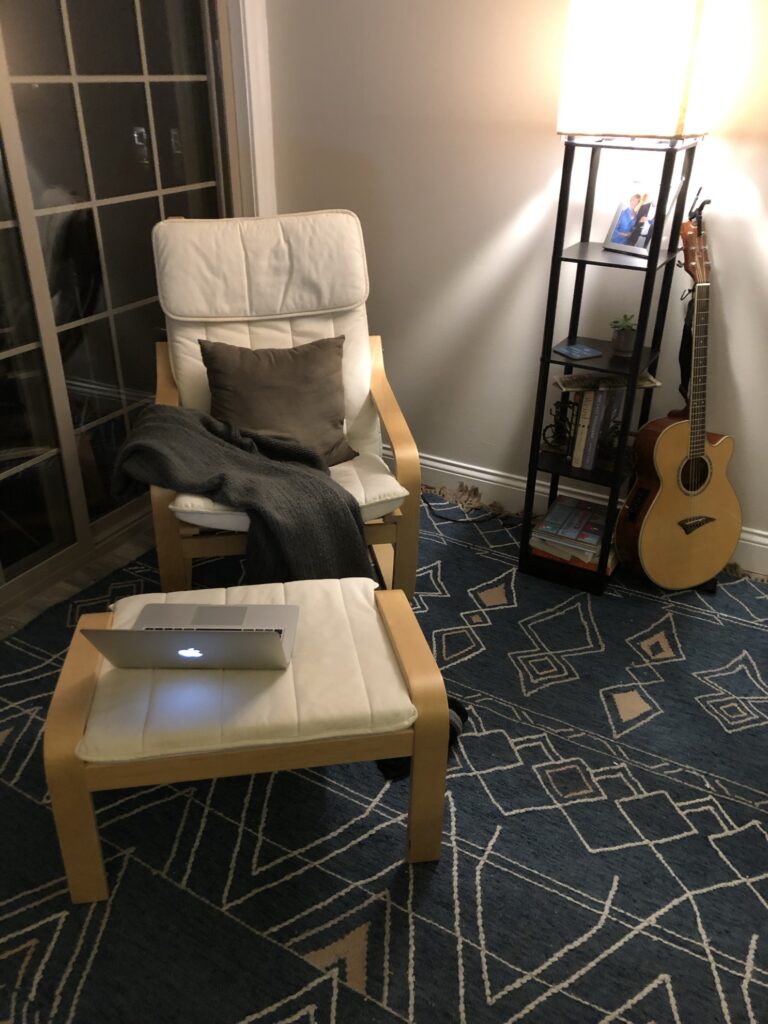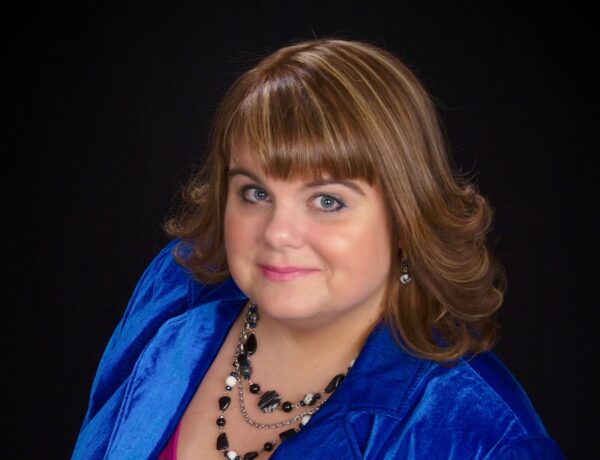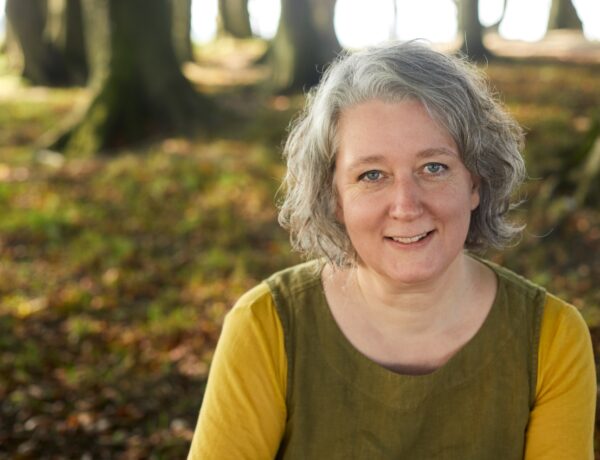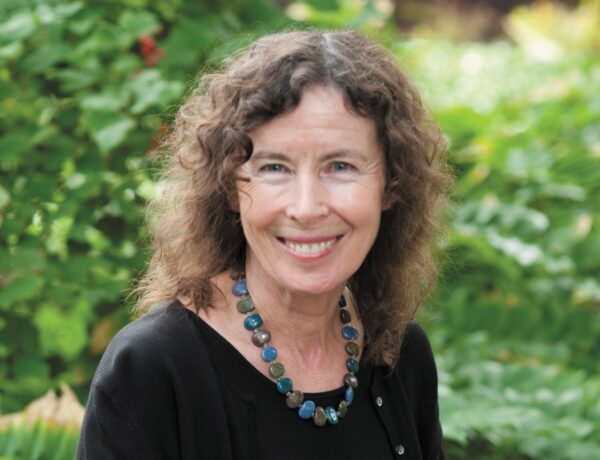Kathy Gilsinan is a contributing writer at the Atlantic, where she has reported on national security and contributed to its extensive and acclaimed coronavirus coverage.
Her book, The Helpers: Profiles From the Front Lines of the Pandemic, profiles eight individuals who played a crucial role in the fight against the coronavirus. From a devoted son caring for his family to a vaccine researcher in Boston, Gilsinan presents a diverse and inspiring cast of characters who came together across the country and socioeconomic spectrum to battle the pandemic.
Looking for inspiration to help you achieve your writing goals? Subscribe to our newsletter for exclusive insights into the routines, habits, and techniques of some of the most celebrated authors in history.
Hi Kathy, welcome to Famous Writing Routines, great to have you here with us today! Your book, The Helpers, tells the story of eight individuals who worked tirelessly on the front lines of the COVID-19 pandemic. How did you decide to focus on these specific individuals, and what drew you to their stories?
I started (mostly) by thinking about the kinds of people I wanted to feature: I knew I wanted a nurse, and someone working on a vaccine, and someone working to feed all these people who were suddenly out of work, etc. Then I also thought about geography: I wanted to feature folks from all over, since the pandemic was felt so differently in different parts of the country.
In a few cases, I just came across news stories of people I knew I had to write about, such as the paramedic who drove his ambulance from Colorado to New York City at the height of that horrible surge there, and the young CEO who teamed up his small ventilator company with GM to massively scale up his company and pump out thousands of the machines. And then some of it was luck, based on who was willing to talk.
I approached a few people involved in working on a vaccine, for instance, and Moderna ended up being the only place that would cooperate. In all cases, though, I was drawn to stories of individuals trying to fight impossible odds to just make things a little bit better if they could.
The pandemic was a difficult and challenging time for everyone, and you’ve noted that there was hope amidst the hardship. Can you tell us more about the hopeful moments that you witnessed or heard about while researching for the book?
Especially for those I profiled in the medical profession, they were never going to save everybody, and they still showed up to work and tried. The nurse I wound up writing about, Michelle Gonzalez, is an ICU nurse in the Bronx, so she was only seeing the very sickest patients. She told me the story of treating a fellow nurse who she hadn’t been sure was going to make it, finally getting her off the ventilator and gradually coaxing her back into reality with orienting questions like “Are we in the library?” etc.
The woman starts to wiggle her fingers at Michelle’s instruction, and Michelle is so relieved she’s going to pull through. Probably the most dramatic moment is the Zoom (or maybe WebEx) meeting in which the team from Moderna finds out how their clinical trials went, and that the vaccine actually works.
We know more about waning immunity now than we did then, but getting an effective vaccine so quickly, on the back of decades of scientific research and a year of truly brilliant, dedicated individuals going all out to get us something to protect from Covid, has saved millions of lives. Just an incredible achievement.
Can you take us through the writing process for this book? What did a typical day look like while you were working on it?
Honestly I don’t know if there was such a thing as a typical day—sometimes I think I want to be the kind of writer who has a routine, like I write for two hours in the morning, eat, then spend a few hours on phone calls, then read and research and make a plan for the next day (or whatever people with routines do). More often it was chaos.
I took calls when I could get extremely busy people on the schedule, some days I could write 2,000 words and some days I could barely get 200 out. I also found it extremely helpful to write out of order; if I was working on a section and I needed someone to call me back before I could finish it, I’d go work on another section somewhere else in the book, so that I was at least writing and not letting days go by on an extremely tight deadline.
I had to report and write simultaneously (there was no time to just report for a while and later sit down and write everything), which turned out to be helpful, because often I didn’t know what questions I needed to ask until I sat down to write a section and realized I was missing key details. (“TK” was very much my friend, and my sources were very patient.) I did a lot of writing on one particular couch in my parents’ living room, or in my bed under the covers.
There was a period of a few weeks where I procrastinated by doing crossword puzzles, and I haven’t really touched one since. A few non-writing constants were near-daily workouts, frequent naps, and religious attendance at 5pm cocktail hour with my parents, including Rob Roy Fridays (a Rob Roy being a Manhattan made with scotch instead of bourbon).
Do you struggle to stay focused while writing? You’re not alone! That’s why Famous Writing Routines recommends Freedom – the ultimate app and website blocker for Mac, Windows, Android, iOS, and Chrome. With over 2.5 million users, Freedom helps writers stay on task and avoid distractions. Get started for free today and reclaim your productivity!
Your book showcases people from different backgrounds and socioeconomic statuses coming together to fight the pandemic. Can you speak to how this shared experience of the pandemic has affected the country and its people as a whole?
I wish I could say it’s brought us all together, but sadly the pandemic just seemed to polarize the country that much more, as if we could share an experience but not an interpretation of it. (I started the writing process somewhat optimistically, at a moment when I saw Americans really trying to look out for one another, and turned in the first draft in a much different environment, on January 6, 2021.)
Also, as we’ve learned since, the pandemic’s worst effects fell very disproportionately on the elderly and on poorer communities, where it was more difficult to isolate or take time away from work. Having said that, among the people I profiled I did find a shared sense of responsibility to other people, particularly those who were suffering.
And I know for me personally and many other Americans, the pandemic has forced some perspective-taking on what we value in life. It has certainly changed many Americans’ relationships to their jobs (see: “quiet quitting” and “the great resignation”).
As a contributing writer for The Atlantic, you have covered national security and contributed to the magazine’s coverage of the pandemic. How has your work as a journalist informed your writing of The Helpers, and what unique perspective do you bring to this topic?
The book allowed me to do more character-driven, feature writing than I used to do at the Atlantic, where I did a lot more analysis and commentary. It’s a different skill set and it especially requires a different style of interviewing aimed at getting details and setting scenes, so I had to go back several times to my sources as I was writing and ask things like “ok, were you copied on that email or was it forwarded to you?” “were you standing on the sidewalk or in the parking lot?” etc.
The experience also pushed me away from national security writing from DC and toward political feature writing back home in the Midwest because of how much I found I liked talking to normal people about their lives and what matters to them, vs. interviewing public officials about, say, the latest round of Iran sanctions.
The Helpers is a deeply moving and emotionally charged narrative. How did you approach the writing process to capture the humanity and vulnerability of these individuals while also honoring their courage and resilience?
Wow, thank you for saying so. I was very fortunate that the people I happened to pick to write about were extremely good at telling their own stories—every single one was a profound thinker as well as a giver, and all of them knew how to tell compelling anecdotes.
I tried to build up trust over a few conversations with the people I profiled, and approach the difficult topics sensitively, and I like to think that talking to me gave them a bit of a chance to process what was happening to them in real time. Often we were having pretty raw conversations pretty close to quite painful events, so it didn’t take much work on my part to get the emotion on the page—I just tried to write from what they told me and keep their voices in my head.
For me, conveying the emotions was kind of the easy part because my subjects had spoken so well on their own feelings. I think—I hope!—their courage and resilience come through in the very fact that each one of them so clearly struggles with fear and doubt and just tries anyway, when the temptation of giving up in despair is always there. They just show up. That’s a huge, profound thing to me.
If you could have a conversation with any author throughout history about their writing routine and creative process, who would that person be?
I’ve read so many books where I’m like “how did they *do* that?” So I’ll definitely forget which one throughout history struck me the most, but I’ll go with one of my current favorites, who is Patrick Radden Keefe.
First of all, his subjects are all over the place and always weighty and dark and interesting, whether it’s murder in Northern Ireland or the pharmaceutical company that fueled the opioid epidemic or the bereaved brother of a Lockerbie bombing victim determined to find the bomb maker.
Second of all, he is scrupulously fair to his subjects, even when they’re criminals. Third, he does an insane amount of research and gets an insane amount of detail, so the organizational feat he achieves with every book or story is something I envy as a very disorganized person. And finally he does all that in really good writing!
I’d love to know about the books you’re reading at the moment. What have been some of your favorite recent reads?
Right now I’m reading Curtis Sittenfeld’s American Wife, which is a fictional portrait of a First Lady of the United States; she’s a clear and perceptive writer and the story is engrossing. Plus she’s from St. Louis like me! I have read a few installments of Mick Herron’s Slow Horses/Slough House series, which are darkly funny, suspenseful spy novels that also deal with the concept of failure, a subject in which I have some personal experience! I’ve been reading a series of Patrick Radden Keefe’s New Yorker stories called “Rogues,” and also an excellent book by Saket Soni called The Great Escape, which tells a truly horrific and largely hidden story about labor trafficking in America.
What does your current writing workspace look like?
A chair with a blanket by the window.

Affiliate disclaimer: Some links on this website are affiliate links. We may earn a small commission if you make a purchase through these links, but only promote products we truly believe in. We disclose affiliate links and give honest reviews.



No Comments